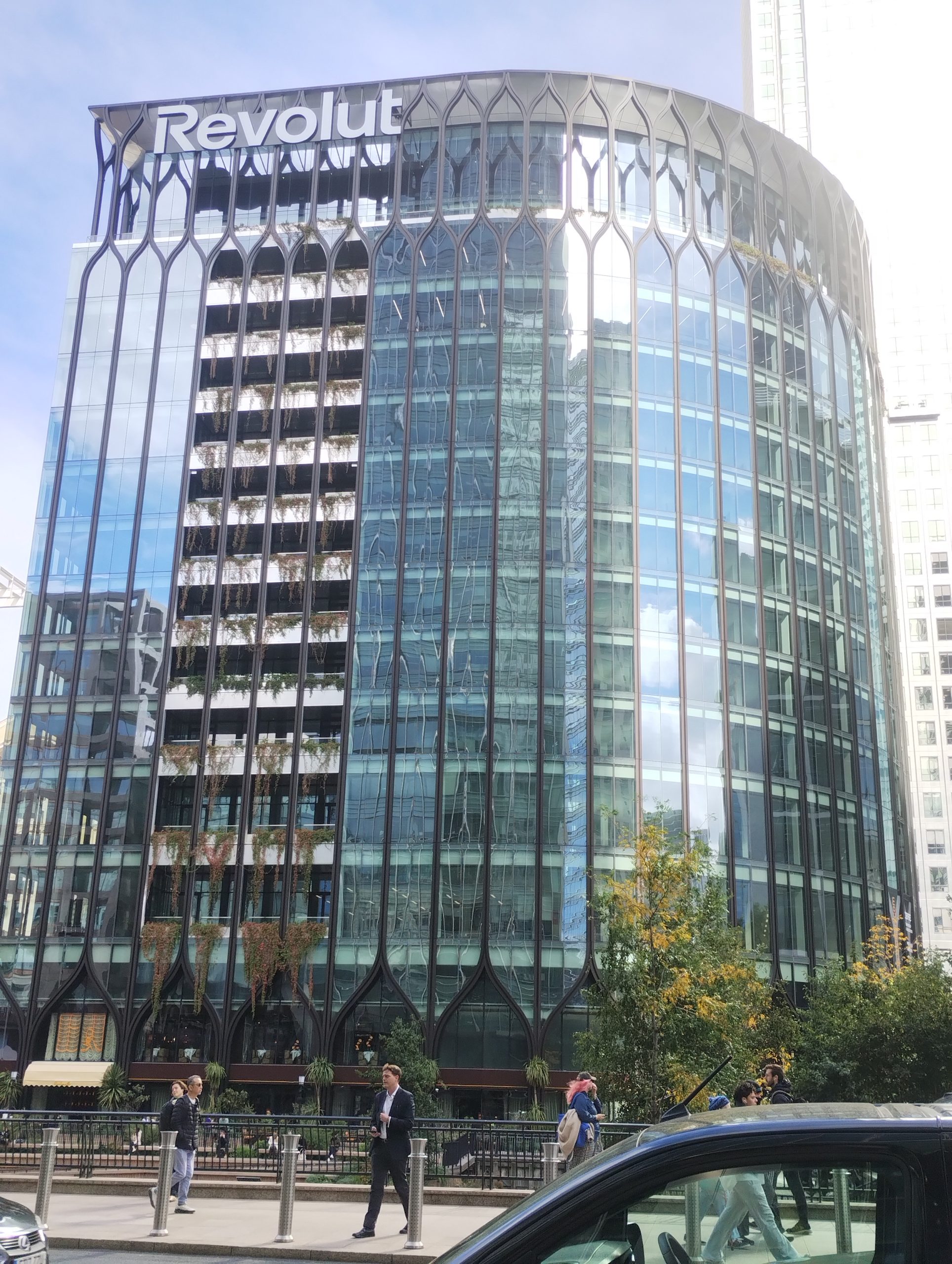
I asked my friend Max, an early investor in Revolut, to provide an insight into the new headquarters the company opened this week in Canary Wharf, London. Revolut bought the building that was previously the HQ of Thomson Reuters, as a pretty bold move. Here are his thoughts …
Revolut unveils its Global HQ, sets out its vision to reach 100 million customers by 2027.
On Tuesday, Revolut officially opened its Global Headquarters in the heart of London's Canary Wharf. During a polished event, UK Chancellor of the Exchequer Rachel Reeves announced that the UK is open for business and is working to "get ahead in the global race for investment." She also revealed Revolut's plan to invest $4 billion in its expansion within the UK and to create 1,000 new jobs, as the company already serves over 12 million customers.
In a statement, CEO Nik Storonsky said, "Starting from our roots in the UK, we have grown to serve over 65 million customers globally. This headquarters will be essential for driving our growth towards our next milestone of 100 million customers." Currently, the company is onboarding 1 million customers every 17 days.
Globally, by 2030, Revolut plans to invest $13 billion to accelerate its expansion strategy and support the creation of 10,000 jobs. In addition to allocating $4 billion for investment in the UK, it previously announced a $500 million investment in the U.S. and a $1.2 billion investment in France for its expansion into Western Europe's operations.
Revolut is making significant strides in obtaining licenses across Latin America, the Asia-Pacific (APAC) region, Africa, and the Middle East. Currently, the company operates in over 40 markets and plans to expand into more than 30 additional markets by 2030. Revolut aims to become the world’s first truly global bank, establish itself as one of the top three financial apps in every market it enters.
“It’s not going to happen overnight — this is a multi-year journey,” Sid Jajodia, Revolut’s chief of banking, said in an interview with Bloomberg.“All of this requires investment. It requires capitalisation. So once you get a license, you’ve got to embed a lot of capital — in some cases, hundreds of millions of dollars of capital — into an entity. You have to build the team.”
I understand that the funds for this initiative will come partly from profits and partly from future funding rounds that the company is rumoured to be planning. Currently valued at $75 billion, the company seems to have sufficient interest from investors, including the U.S. tech giant Nvidia. During a recent visit to the UK, its CEO, Jensen Huang, stated, "Revolut, what an amazing story, what an amazing story and great partner. I am investing in your next round." Such endorsement from one of the U.S. tech powerhouses goes a long way.
Revolut faces some challenges as it awaits approval from the Bank of England to exit the mobilisation stage and launch its UK banking operations. This delay may also affect regulators in Australia and Mexico as they consider issuing approvals. CEO Nik Storonsky mentioned in a recent interview that the company will only apply for a banking charter in the U.S. once the UK bank has launched and onboarded all customers. He emphasised that his "number one" priority is to launch the UK bank, which the company aims to achieve by 2025. To expedite the process in the U.S., Revolut is evaluating options, including the acquisition of a chartered bank.
A few years back, after Nik Storonsky criticised UK regulators, you might have thought that Revolut would relocate its global headquarters outside of the UK. However, yesterday, Revolut made several announcements that transformed that uncertainty into a commitment to solidifying its presence in the UK. They addressed doubts head-on and reaffirmed their dedication to the UK and its regulators for their global challenges. This marks a new chapter in Revolut's story.
I have questions about Revolut's future as a truly global fintech giant. How will it manage to become less dependent on its partners? Are there plans to build its own data centres? Additionally, how will the remaining $7.3 billion from the announced $13 billion investment be used?
Max Karpis
I write almost daily about Revolut. Follow me on X @MaxKarpis https://x.com/maxkarpis
Chris M Skinner
Chris Skinner is best known as an independent commentator on the financial markets through his blog, TheFinanser.com, as author of the bestselling book Digital Bank, and Chair of the European networking forum the Financial Services Club. He has been voted one of the most influential people in banking by The Financial Brand (as well as one of the best blogs), a FinTech Titan (Next Bank), one of the Fintech Leaders you need to follow (City AM, Deluxe and Jax Finance), as well as one of the Top 40 most influential people in financial technology by the Wall Street Journal's Financial News. To learn more click here...

